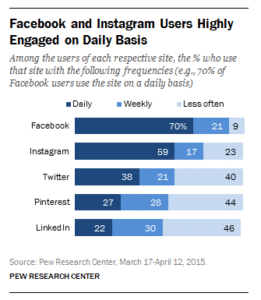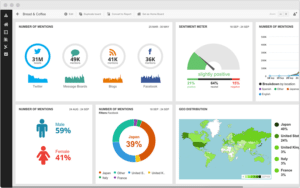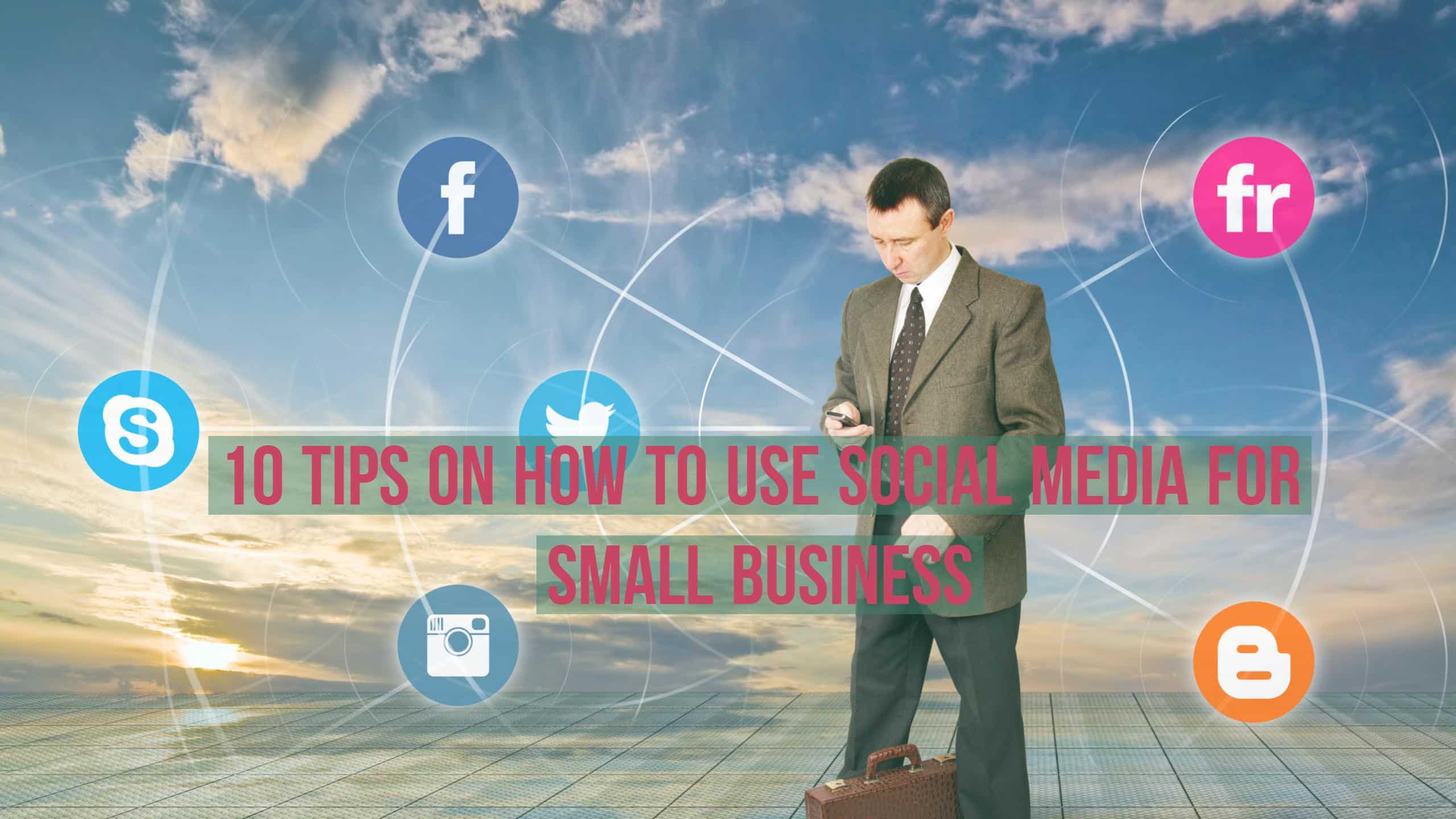Today, there is no question whether social media is a worthwhile investment. A few years ago, small business owners were not so sure if the needed social media. Now, it is a matter of efficiency and effectiveness, and the best way to move your business forward.
There is a large percentage of small businesses who use some sort of social media, but there are still several SMB’s who are not taking advantage all the marketing benefits social media has to offer. There is great potential for success when using social media, so there is no reason to only watch other companies grow. Before you can get up and running and understanding how to stand out online and remain visible you must know a few marketing basics.
1) Know Where You Are Going
It is obvious to many that using social media is beneficial to a company, but some may wonder what the direct benefits are. There are certain measuring tools you can use to determine if your social media marketing plan is working, but for now you have to look at the whole picture.
Social media marketing campaign strategies are not created equal. Some are just meant to inform while others are call-to-action campaigns, or event driven. Knowing the multiple facets and capabilities of each social media platform is going to be more efficient and keep the workload manageable.
You have to create solid achievable goals, write them down, and then measure your results against your goals. That is how you will be able to tell if your social media effects have been a success. There are several ways to approach goal-setting, SMART goals are one of the most popular goal-setting frameworks for businesses.
- Specific: Be as specific as you can with your objective. It will make it easier to see what you need to accomplish.
- Measurable: Identify how you will track whether a goal has been reached or not.
- Attainable: Make sure your goals are realistic and achievable. At the same time, don’t sell yourself short.
- Relevant: Your goals should excel your business and drive it forward.
- Time: Make sure to give yourself a deadline to achieve the goals on your list. Goals without deadlines are dreams.
2) Define Your Audience
In today’s marketing world, an effective social media campaign is important, but first you have to identify who your target audience is. The specific details about your target audience will help you to select the best social media platforms for the content you will be sharing, and the advancement of your business.
Some of the demographics you need to identify about your target audience is age, location, income, education level, career, and interest and hobbies. The more specific you can with this information, the better you will know your target audience. The better you know your target audience, the stronger social media marketing strategy you will be able to create that targets the right people at the right time.
3) Research the Platforms
Now that you know who you are looking to reach, you have to figure out where to reach them. Social media networks vary by users; some have a niche group while others are demographic melting pots. As a growing business, you have to know which platforms your target audience primarily uses so you do not invest too much time and energy into marketing on a social network that few people of your target audience utilizes.
The Demographics of Social Media Users According to Pew Research

4) B2B and B2C Considerations
The social media marketing strategy your company will use is determined primarily by the industry you are in. B2B and B2C companies use social media in a slightly different way. Demographics are going to lead which platform to use for each type of business.
5) Platform Strength and Weaknesses
Beyond the demographics, you must know the platforms strengths and weaknesses. For example, if a large part of your social media marketing strategy is using video, you need to select a platform that can best support that form of content. A question you should ask yourself is what is your schedule or timeline for posting content. If you are looking to post multiple times a day, Twitter may be a better platform due to its fast moving stream, but if you want each posting to have a longer “lifespan” than Facebook may be your go to platform. It is not an either or, but what is best for this audience and your content.
6) Customer Service
Social media a not only for disseminating information and driving awareness, but it is a great networking and relationship building tool. Customers use social networks to reach out for questions or complaints, and it makes it much easier for you to respond to those customer service queries. You have to know what of the social media platforms is going to allow you to be both engaging and responsive. You need to have both to offer the best customer service to current and potential customers. Remember, with social media your business will have a handle and users may use a variation of your handle. Make sure you are using the best tracking available in the platform to you w miss out on responding to those customers who may not have typed your handle perfectly.
Facebook is Beat testing a Customer Service Messenger Platform.

7) Utilize a Tool for Social Media Management
Attempting to blast out and manage your marketing campaign across all of the social media networks can be overwhelming and ultimately futile as it can be just too much information, in the beginning, to manage and track. For companies, social media is about reaching out to as many potential customers as possible, but it is essentially about establishing value for your product and service, and building real relationships. There are social media management tools available that track brand mentions and produce detailed reports for the business.
Jeff Bullas has a great guided you can find it HERE
8) Know The Numbers
So you have set your goals, you know your objective, and you have identified your demographics and the corresponding platforms. Now it is time to find out how successful your strategy has been, and where you are in achieving the goals set forth. This is also the time to reevaluate tactics and set new goals if others have been met.
A Comprehensive Guide to Social Media ROI – via Hootsuite
9) What To Track
There are a few things you want to look for when tracking the success of your social media campaign. Some of those are likes, impressions, engagement, unlikes, retweets, mentions, followers, and links to your pages. Tracking everything for every social media page is not particularly necessary, but using the networks specific to your industry, business, and audience will help with the monitoring and tracking of the number for each platform.

(Example of Hootsuite’s analytic dashboard)
10) Do It Again
Social media is an ever evolving platform with new features and networks popping up quite frequently. It can be a full time job creating content, uploading, monitoring, and checking metrics. Your goals will need constant reevaluation as you will be surpassing old ones and creating new ones. You will constantly be experimenting with different types of content on new platforms.
As your business develops and grows, as will your online footprint, but at this current stage the one of the primary objectives is to figure out what does and doesn’t work for your business. When you find something that is not working for the business, don’t get discouraged, but begin revamping the strategy and plan you are using.
If you ever begin to feel overwhelmed with social media, utilize the online tools, or hire a social media manager to help you reorganize and continue to move your business forward.









0 Comments